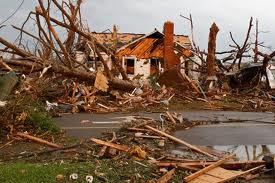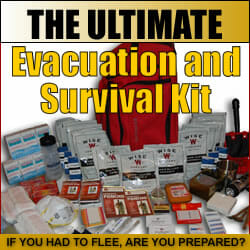|
Listen To The Article
|
With the obvious exception of an earthquake, it is generally not accurate to say that natural disasters strike without warning. But even though most people caught in a hurricane, flood, tornado, or wildfire usually have some chance to prepare for the coming calamity, the changes these tempests can bring are still dramatic and traumatic. No matter how well-prepared someone thinks they are when something wicked this way comes, natural disasters are truly a spin of the roulette wheel, and when nature’s fickle agents of destruction arrive, they could decide to drop the hammer on anyone.
 Of course those who pay the ultimate price are the real victims of natural disasters, and those who survive have every reason to feel grateful and blessed. Nevertheless, while survivors are fortunate to still be alive, no one makes it through a natural disaster unscathed. Survivors of disaster go through a whole range of feelings and emotions, and if they do not take care of themselves or acknowledge everything they have been through, they can soon find themselves drowning in a sea of depression and emotional breakdown.
Of course those who pay the ultimate price are the real victims of natural disasters, and those who survive have every reason to feel grateful and blessed. Nevertheless, while survivors are fortunate to still be alive, no one makes it through a natural disaster unscathed. Survivors of disaster go through a whole range of feelings and emotions, and if they do not take care of themselves or acknowledge everything they have been through, they can soon find themselves drowning in a sea of depression and emotional breakdown.
What Is It Like to Survive?
Events like tornadoes, earthquakes, mudslides, and tsunamis leave a trail of destruction in their wake. Included in this trail of tears are the broken souls and spirits of those who in an instant have lost their possessions, their homes, their pets, and in some instances, people they knew and cared about. Natural disasters are traumatic events, and those who live through them experience a number of symptoms [1]that are familiar to those who have been through war or have been the victims of a crime.
It is the suddenness of it all that shakes peoples’ worlds right down to their foundations. Traumatic events rock people to the core emotionally, psychologically, spiritually, financially, and socially. They leave chaos and ruin where before had stood safe and secure homesteads, and a daunting, open-ended life rebuilding process where before there had been stability.
In the immediate aftermath of a natural disaster, survivors may experience a mixture of feelings. Of course there will be joy and relief over still being alive, and also great happiness if loved ones made it through all right. But once the adrenalin of the moment wears off, survivors are likely to experience a raft of negative symptoms, which could include:
- Fear
 [2]
[2] - Anxiety
- Sleeplessness
- Sudden anger
- Sensitivity to loud noise
- Fits of crying
- Depression
- Concentration problems
- Nightmares and flashbacks
- Moodiness and irritability
- General pessimism
These are typical reactions to extreme stress. In addition to these psychologically based responses, those who have gone through a shocking and traumatic event can also experience symptoms of physical illness such as headaches, cramps, allergic reactions, dizziness, vertigo, rapid heartbeat, nausea, and diarrhea.
There is one thing about all of this that is very important to realize, and that is that these reactions are entirely normal in the face of a world-shattering event. It is only when such symptoms persist for months instead of weeks that there is a serious problem that may need to be addressed.
Coping with the Aftermath
For natural disaster survivors, the inner turmoil and chaos couldn’t come at a worse time. Not only are they incredibly vulnerable because of everything they have gone through, but there may also be a tremendous amount of work that has to be done to rebuild their lives and the lives of their families. These are times that push men and women to the breaking point, but they are also the times where people need to be strong, resilient, and determined not be beaten by the dark destructive forces of nature [3]. Therefore, it is critically important that people take steps to help themselves get over what has happened and get on with their lives as quickly as possible. What they are feeling is natural, and no one should be beating themselves up because of they are not at their best in those terrible moments following a disaster. But at the same time, disaster victims can’t afford to just sit back and wait for those disabling symptoms to subside on their own.
In his classic work Man’s Search for Meaning, psychiatrist and Holocaust survivor Viktor Frankl [4] studied people who had managed to survive in the most extreme circumstances, and he found that the one thing that united them all is that each had something important that they needed to live for, something that gave meaning and purpose to their lives. Without that purpose, the human soul withers and dies, but when they have something that gives their life real meaning, people can accomplish amazing and inspiring things. Unfortunately, modern psychology has not followed Dr. Frankl’s example, and instead of studying those who thrive to uncover their secrets, they have continued to concentrate on mental dysfunction and disability, looking for answers where things have gone wrong instead of where they have gone right. For natural disaster victims, only a positive approach will help, and making it through the dark times requires them to stay completely focused on things that can give their lives meaning and purpose.
Specific Strategies for Survival and Revival [5]
[5]
There are four things that people can do to help themselves find meaning and inspiration when times are the hardest. The first one is to live in the moment as much as possible. Disaster victims shouldn’t look back to what was, or forward to what they might want things to be. Instead, they must put all of their physical and emotional energy into surviving in the moment and helping their family members do the same. Focusing on survival needs most certainly puts what is most meaningful in the short term front and center, where it belongs, and living in the moment is one of the best antidotes for disabling depression that has ever been found.
The second important coping strategy is to practice a healthy lifestyle in all aspects. Eating healthy foods, drinking plenty of water, getting enough sleep, exercising regularly – all of these things add meaning and purpose to daily activity, as they deliver the subliminal message that life is worth living and fighting for even when times are at their roughest. These activities will also help dramatically reduce levels of stress [6]and help combat the physical illness that can prey on those whose immune systems are vulnerable due to the effects of sudden trauma.
The third important thing to do is to reach out to others who have had their lives shattered by the same traumatic event. Helping others as a way of helping yourself is one of the best things that anyone can do to bring greater meaning into their lives. In addition, connecting with others who have experienced the same will give natural disaster victims a chance to talk about their own feelings and reactions with others who understand, which can have a powerful cathartic effect.
Finally, there is one more thing that everyone should do that is probably more important than all the other steps combined, and that is to reach out to the One who loves us and cares about us most of all. If we are not willing to turn to God when we are facing something as traumatic and life-changing as being victimized along with our friends, family, and neighbors in a natural disaster, then the question has to be asked: when are we going to turn to Him? God is the ultimate source of all meaning [7], and only through our contemplation of Him and our prayers to Him are we going to find the peace of mind and the strength we need to carry on in our time of greatest adversity.
Finding Your Inner Light in Times of Darkness
Psychological and emotional suffering in the aftermath of a natural disaster are inevitable. How we choose to deal with that suffering, however, is entirely up to us. If we take responsibility for healing ourselves – with help from the Source of All Things – then we can make it through a tornado, flood, earthquake, hurricane, or wildfire with our dignity and our inner strength intact. Natural disasters can destroy our possessions, but they can only destroy our souls if we let them.
©2011 Off the Grid News
